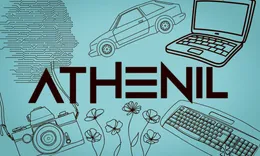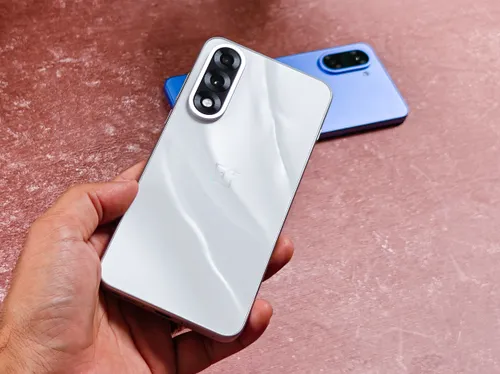
Dell's Alienware Area-51 laptops land in India, rocking the latest from Intel and Nvidia
The Alienware Area-51 laptops are back, and they will be up for grabs in the Indian market with a base price of Rs. 309,990. Time to sell some... erm... burn some monies!

Athenil Bites, July 18: The dawn of super babies, ChatGPT gets agent, and Perplexity baits India
US labs are cooking up super babies that are stronger and healthier using.... AI. Over 300 million Indians got Pro-grade AI tool for free overnight. And your favorite AI is now an agent.

Athenil Bites, July 17: Mercedes brings meetings to cars, an iPhone case with human skin, and Apple's foldable shocker
The iPhone 17 Pro's screen will cheat the Sun. And key scratches. AI? Well, researchers say it lacks confidence and will quickly change its opinion. Finicky shizz!

Athenil Bites, July 16: Musk's robotaxi on a penis, yoga for insomniacs, and smartphones to fix oral cancer?
Lord Musk is in the news again... for a dick joke. On the positive side, a cheap smartphone-powered tool is helping find and destroy oral cancer.

Athenil Bites, July 15: AI puts virus on Indian restro menu, Meta says unoriginal content sucks, and hot AI goth girls by Musk
The world of AI is coming for us all. And not necessarily in a good way, it seems!
Google Search could be smothering your creativity
A Carnegie Mellon University study reveals starting your brainstorming process with Google can be detrimental to the group's creativity.
Teams relying much on search engines often produced inundatingly same, less original ideas due to a cognitive bias called "fixation effect," where seeing popular answers converges our thought process instead of diverging it.

While individuals weren't necessarily dumber with Google, groups of Google users seemed to get stuck in a rut, often coming up with the same common ideas, sometimes even in the same order! Talk about a copy-and-paste creativity crisis.
"This appears to be due to the fact that Google users came up with the same common answers, often in the same order, as they relied on Google, while non-Google users came up with more distinct answers," explained lead author Danny Oppenheimer.
EDITORS' PICKS



